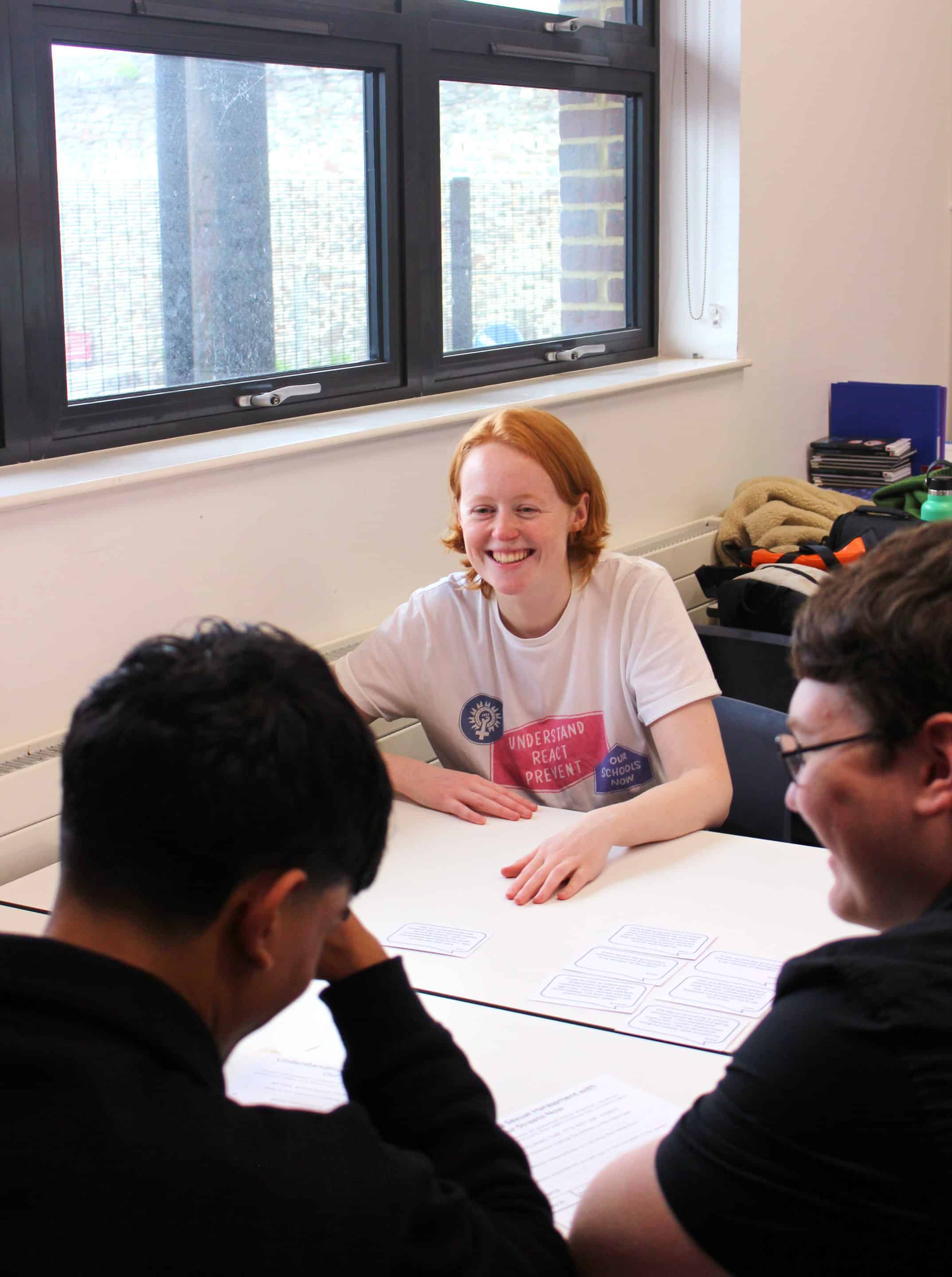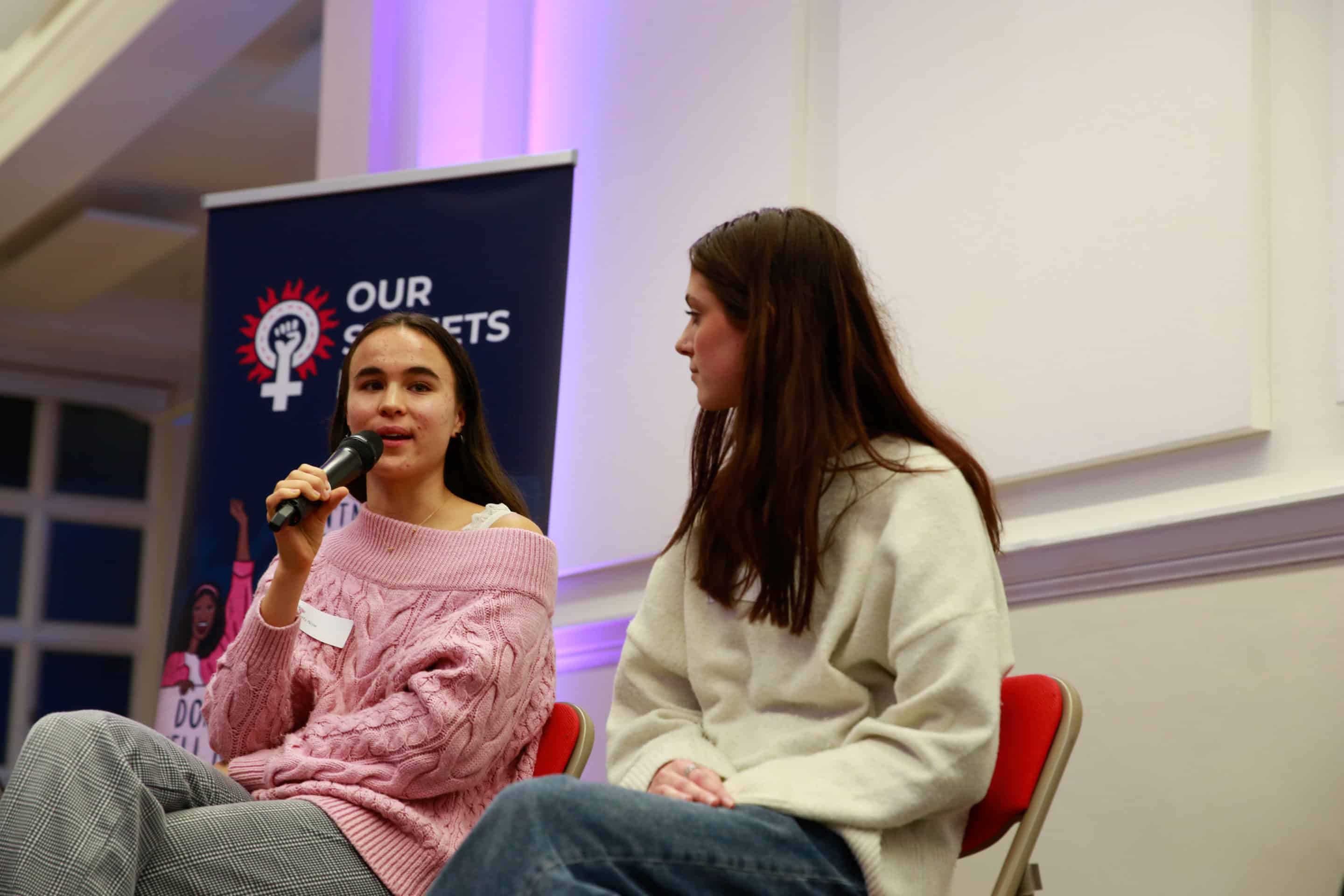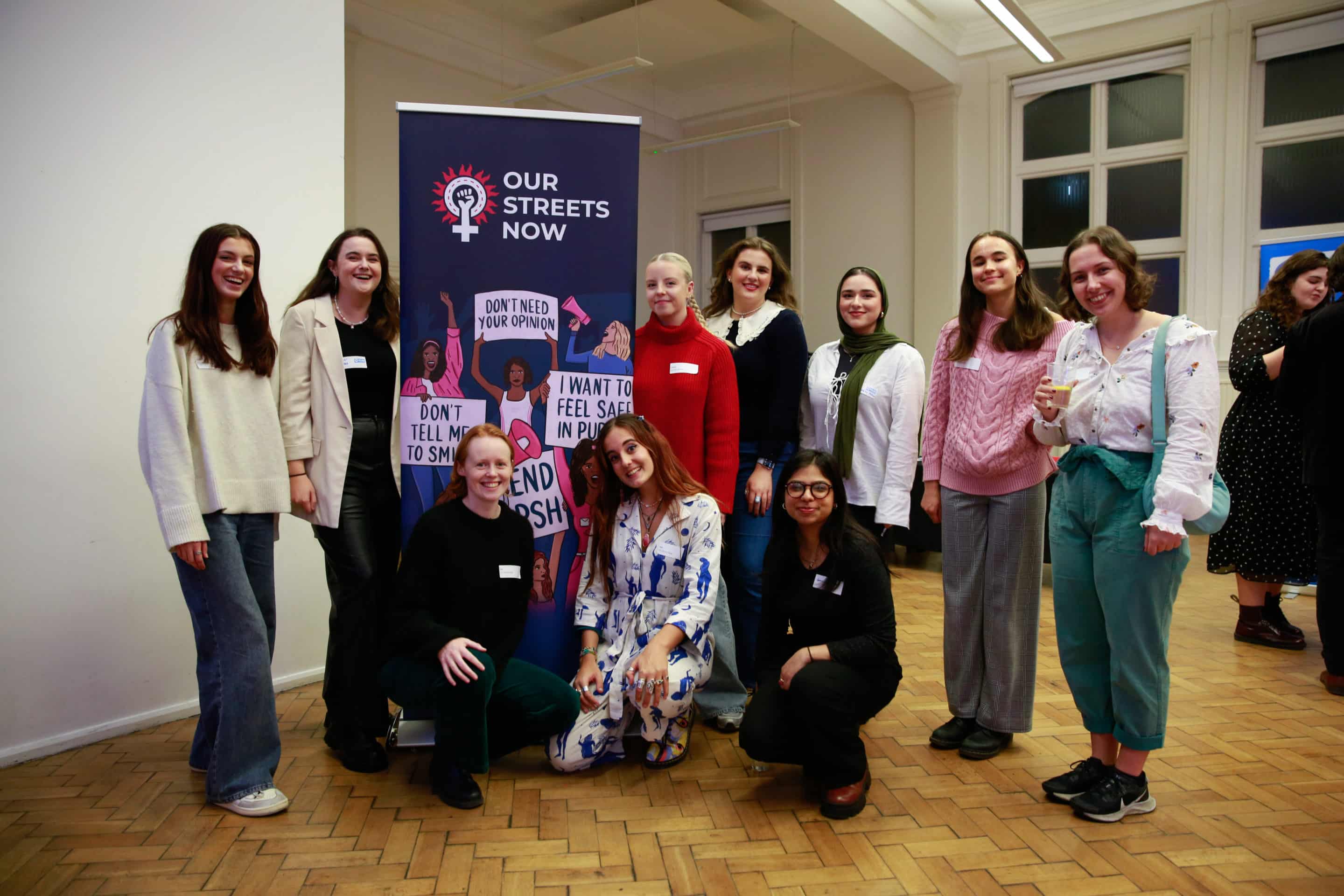Our Streets Now is a youth-led campaign working to end public sexual harassment (PSH) in the UK — not just through law, but through culture, education and everyday action. It was founded by two sisters, Maya and Gemma Tutton, who began the campaign as teenagers after experiencing the normalisation of street harassment firsthand. From the beginning, they wanted to challenge the idea that this behaviour was just a ‘part of growing up’ — and to help others recognise that public sexual harassment is a form of gender-based violence that limits people’s access to public space.

At the start, the campaign was framed around two pillars: culture and law. “We wanted to change the law to make PSH its own criminal offence, which we achieved in 2023. The other pillar was less defined, it was about awareness, prevention, and helping people name what they’d experienced.”
That early awareness work began on Instagram. “We had thousands of people writing to us in the first year with their testimonies,” Issy recalls. “That really hit us — how many people had experienced it, and how important it was for them to name it and say it out loud.”
Over time, the campaign evolved. “We realised that although it’s definitely important, criminalisation isn’t everything. We needed to be encouraging preventative solutions too. That’s why our new strategy is built around three pillars: education, visibility, and advocacy, which all feed into each other.”
Education means delivering tailored workshops in schools, universities, workplaces and sports organisations, the spaces where culture can shift from the ground up. “There’s more eyes open to the extent of the behaviour. And I don’t love the phrase, but to the so-called ‘low-level’ or everyday harms,” says Issy. “I see that as the impact we’re having in cultures and organisations, helping people think critically about what they’re seeing, and giving them the confidence to name it for what it is: sexual harassment or misogyny. Over the last two years, we’ve been doing more of that work in sport too and helping to steer conversations that were happening, about how public sexual harassment can affect women running at night for example, in the right direction.”
Visibility is about changing the public conversation. “One of our big wins is that the government now uses the language we came up with. We were the first to use the phrase ‘public sexual harassment’, and it’s now in the national RSE guidance. That matters. Because if you can’t name something, how do you fight it?”
And advocacy builds on that awareness by embedding prevention into systems and policy. “So that’s legal change and changing national policies. But instead of legal change to criminalise, we’re focusing on legal change which prevents it. So for example, lobbying for better education policies which include or make it mandatory to have a duty to prevent within schools or within universities.”

“A 15-year-old girl emailed us saying: ‘Thank you for giving me the confidence to make change. I ran an assembly at my school, and now I’m working with teachers to embed this into the curriculum.’ That’s really the energy of the work we’re trying to do.”
At a recent partnerships fair in Cardiff, Issy ran into teachers from schools they’d worked with the year before. “They said, ‘Those girls you worked with are now in Year 13 — and they’re still marching into the headteacher’s office demanding better policies around uniform and harassment.’”
Not all of these stories make it into the reports. “They’re often hard to get down on paper,” Issy says, “because they trickle back to us via word of mouth.” But occasionally, they get the data too. In one year-long school partnership, students were surveyed before and after a full programme. “Before the programme, around 49% of students said they’d feel comfortable reporting public sexual harassment. By the end of the year, that had risen to 73%.”
That kind of change takes strategy, and sustainability. It takes time to reflect, experiment and rebuild. That’s what support from the Pathways Fund enabled.
The Pathways Fund came at a pivotal time. In 2022, Our Streets Now was still operating informally — no board, no staff, and, as Issy puts it, “we were still using Hotmail.” Despite increasing demand, they couldn’t take on contracts or scale their delivery. The Pathways Fund gave them space to stabilise and structure.
“Being youth-led, women-led, and new — there’s a lot working against you,” Issy says. “So even little things, like having a domain name email address or being listed on Companies House, really shifted how people saw us.”
With multi-year support, they built a board, hired an Operations Coordinator, and redesigned their structure to match how the team actually worked. “We used to be split into silos — schools, higher education, sports, social media — and that wasn’t working. We restructured into Programmes and Campaigns, set up team leads, and brought in better systems.”
They’re also using the Wellbeing Grant to take a team retreat, which Issy says they “wouldn’t have prioritised otherwise”, and have leaned on Blagrave’s support to make sense of the practicalities. “Even having support from their HR staff member was a game changer,” Issy reflects. “The problems are so complex, and it was great to have someone talk through it in such a reassuring way. I’ve learned so much about payroll in the last few weeks.”
The impact on their work has been more than logistical too. “Blagrave’s support felt like a vote of confidence. Something we could reference when applying for other grants.”
Today, Issy says, their understanding of growth has deepened. “It’s about sustainability — making sure staff can rely on us for a job, that we pay people well, that we look after them and their wellbeing. It’s about team development, so people are getting upskilled while they’re with us. And then in terms of output and impact, it’s about reaching more people with our education programmes, having a wider reach through comms, and influencing national policy — becoming a bigger player in the violence against women and girls prevention space. Getting PSH higher on the agenda.”

But sustaining that urgency isn’t always easy. “We’re still figuring out what it means to grow without losing the community feel. We’ve lost some volunteer engagement, and making decisions takes more structure now. That tension between being grassroots and being established is real.”
Issy reflects honestly on what funders can do to better support this transition:
“Fund well. Fund with trust. And stop making support conditional on endless bureaucracy. Bad funding can really do harm. It’s not just about giving people money, but how they give money matters. It isn’t automatically a good thing if you do it in the wrong way.”